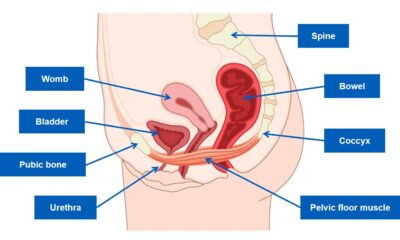Bladder and Bowel Treatment in Jaipur
Dr. Arvind Jaga is a skilled physiotherapist for Bladder and Bowel Treatment in Jaipur who has extensive experience in treating bladder and bowel problems. He understands the sensitive nature of these issues and works with patients to provide personalized care that meets their unique needs.
Bladder and bowel problems can be a source of discomfort and embarrassment for many people. A variety of factors can cause these issues, including injury, illness, and nerve damage. Fortunately, there are treatments available that can help manage these problems and improve quality of life.
There are many treatment options for bladder and bowel dysfunction, depending on the underlying cause and severity of the condition. Dr. Jaga may recommend a combination of therapies to achieve the best possible outcome. These may include pelvic floor muscle exercises, biofeedback therapy, electrical stimulation, and lifestyle modifications.
Pelvic floor muscle exercises are a common treatment for bladder and bowel problems. These exercises help strengthen the muscles that control urination and bowel movements, improving control and reducing the risk of accidents. Biofeedback therapy can also be used to help patients learn to control these muscles more effectively.
Electrical stimulation is another treatment option for bladder and bowel problems. This technique involves using electrical impulses to stimulate the muscles and nerves that control these functions. It can help improve muscle strength and control, reducing the risk of accidents.
Lifestyle modifications can also be an important part of treatment. Dr. Jaga may recommend changes to diet and fluid intake, as well as modifications to daily activities to help manage symptoms. In some cases, medications may be prescribed to help manage bladder and bowel problems.
Overall, Dr. Arvind Jaga is committed to helping patients with Bladder and Bowel Treatment in Jaipur achieve better control and quality of life. With his expert guidance and personalized care, patients can feel more comfortable and confident in managing these sensitive issues.
 Why do bladder and bowel incontinence happen?
Why do bladder and bowel incontinence happen?
Bladder and bowel incontinence can occur for a variety of reasons, including neurological conditions such as multiple sclerosis or Parkinson’s disease, spinal cord injuries, urinary tract infections, pelvic floor muscle weakness, and side effects of certain medications. It can also be a result of aging or a complication of surgery. It is important to consult with a healthcare provider to determine the underlying cause of bladder and bowel incontinence and to receive appropriate treatment. Dr. Arvind Jaga, a physiotherapist in Jaipur, can provide individualized treatment plans for those experiencing bladder and bowel problems.
Signs and symptoms of neurogenic bladder may include:
- Loss of bladder control
- Inability to empty the bladder
- Urinary frequency
- Urinary tract infections.
Signs of neurogenic bowel include:
- Loss of bowel control
- Constipation
- Bowel frequency
- Lack of bowel movements.
What causes bladder or bowel incontinence?
Many conditions may affect the nerves and muscles that control the bladder and bowel.
Bladder incontinence can be caused by things such as:
Damage to nerves in sphincter muscles
Holding urine in too long (urine retention), which can damage the bladder
Having to urinate many times during day and night, often urgently (overactive bladder)
Diarrhea
Bowel incontinence can be caused by things such as:
Diarrhea
Constipation
Damage to the nervous system from disease or injury
Vaginal childbirth
Rectum bulging down into the anus (rectal prolapse)
Rectum pushing into the vagina (rectocele)
Crohn’s disease or ulcerative colitis
Either type of incontinence can be caused by things such as:
Medicine side effects
Stress
Multiple sclerosis
Stroke
Alzheimer’s disease
Diabetes
Infections, including spinal cord or brain infections
Hemorrhoids
Problems with the pelvic floor
Damage after surgery
There are treatment options and other ways to manage neurogenic bladder, such as:
- There are several treatment options available to manage neurogenic bladder, including medication, catheterization, and surgery. Behavioral interventions such as bladder training, pelvic floor muscle exercises, and biofeedback can also be helpful. In addition to these treatments, patients may need to make lifestyle modifications such as following a healthy diet, drinking plenty of fluids, and avoiding bladder irritants. It’s important for patients with neurogenic bladder to work closely with their healthcare provider to develop an individualized treatment plan that meets their specific needs and goals.
Bowel Treatment options for people with neurogenic bowel include:
- For people with neurogenic bowel, treatment options may include medications, bowel training programs, and surgical interventions. Medications such as laxatives or stool softeners can help regulate bowel movements. Bowel training programs involve learning techniques such as digital stimulation or the use of suppositories to help empty the bowel at a regular time each day. In some cases, surgical interventions such as colostomy or ileostomy may be necessary. It is important to work closely with a healthcare provider to develop an individualized treatment plan and to discuss other ways to manage neurogenic bowel, such as dietary modifications and proper hydration.
